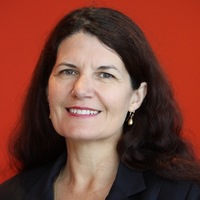- Monash University, Education, Adjunctadd
... analysed. This paper investigates students' understandings of diffusion through the application of a cognitive structural perspective provided by the Structure of the Observed Learning Outcome model devised by Biggs and... more
... analysed. This paper investigates students' understandings of diffusion through the application of a cognitive structural perspective provided by the Structure of the Observed Learning Outcome model devised by Biggs and Collis. ...
Research Interests:
Panizzon, DL & Bond, T., 2006. Exploring Conceptual Understandings of Diffusion and Osmosis by Senior High School and Undergraduate University Science Students. In Applications of Rasch Measurement in Science Education. Maple Grove,... more
Panizzon, DL & Bond, T., 2006. Exploring Conceptual Understandings of Diffusion and Osmosis by Senior High School and Undergraduate University Science Students. In Applications of Rasch Measurement in Science Education. Maple Grove, Minnesota: Journal of Applied ...
Research Interests:
Australia. s education system has attracted much recognition over the last few years due to the above average achievement of our students when compared to other OECD countries in large-scale international tests in science, numeracy and... more
Australia. s education system has attracted much recognition over the last few years due to the above average achievement of our students when compared to other OECD countries in large-scale international tests in science, numeracy and literacy. However, when these ...
To undertake rigorous research in biology and ecology, students must be able to pose testable hypotheses, design decisive studies, and analyse results using suitable statistics. Yet, few biology students excel in topics involving... more
To undertake rigorous research in biology and ecology, students must be able to pose testable hypotheses, design decisive studies, and analyse results using suitable statistics. Yet, few biology students excel in topics involving statistics and most attempt to evade optional courses in ...
Research Interests:
This exploratory study investigated the role and importance of peers in providing personal and academic support for Year 11 female students, enrolled in physics and biology. While these areas of support had been identified in earlier... more
This exploratory study investigated the role and importance of peers in providing personal and academic support for Year 11 female students, enrolled in physics and biology. While these areas of support had been identified in earlier research by Holland and Eisenhart (1981), this study attempted to investigate further their importance within an Australian context. Questionnaires, completed by one hundred female students, were analysed using Principal Components Analysis and MANOVA. The statistical analysis found no significant differences between the six relevant factors and science subjects, however, significant differences emerged in relation to schools and particular factors. Subsequently, six interviews were conducted with selected students to elaborate upon the statistical differences that emerged from these results. The interviews corroborated the findings of the quantitative analysis and provided explanations for these differences. Overall, the results of this study suggest that while the supportive role provided by peers is similar regardless of the science subject undertaken by a female student this role varies between schools.
Research Interests:
... Guest Editorial. The knowledge explosion in science education: Balancing practical and theoretical knowledge. Andrew Boulton 1,* ,; Debra Panizzon 2. Article first published online: 7 DEC 1998. DOI:... more
... Guest Editorial. The knowledge explosion in science education: Balancing practical and theoretical knowledge. Andrew Boulton 1,* ,; Debra Panizzon 2. Article first published online: 7 DEC 1998. DOI: 10.1002/(SICI)1098-2736(199805)35:5<475::AID-TEA1>3.0.CO;2-M. ...
Research Interests:
Much of the literature around rural education highlights broader issues and challenges faced by teachers in rural and remote secondary schools with little emphasis on the detail of teacher pedagogical knowledge and classroom practice that... more
Much of the literature around rural education highlights broader issues and challenges faced by teachers in rural and remote secondary schools with little emphasis on the detail of teacher pedagogical knowledge and classroom practice that might be specific to these very different contexts. This is a serious oversight in country like Australia and Canada where the first teaching position for many graduates may be in small rural schools with few “experienced” mentors in their discipline areas. This is most particularly the case in fields such as the physical sciences. While the key components of quality teaching are relevant regardless of context, it is the way in which teachers apply, develop and implement their pedagogical knowledge to meet the needs of particular students that becomes the real craft of teaching. This chapter explores challenges likely to be confronted by secondary science teachers in rural/remote schools in Australia, and pedagogies and practices that are appropriate responses to these challenges. These challenges include engaging students in small senior classes, multigrade teaching, benchmarking practices that enhance student learning, maintaining academic standards (particularly in senior classes), and using contexts to teach science that are relevant to students and meet curriculum requirements. The implications of these experiences are considered in relation to preservice and inservice teacher education.
